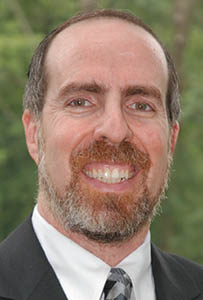
It was the first meeting between Israeli Prime Minister Menachem Begin and United States President Jimmy Carter that occurred in July 1977. At this momentous occasion, President Carter expressed his opposition to the establishment of Jewish communities in Judea and Samaria. Prime Minister Begin responded (as recounted by Yehuda Avner):
“Mr. President, here in the United States of America there are 11 places named Hebron, five places named Shiloh, four places named Bethel and six places named Bethlehem.” Jimmy Carter’s eyes grew faintly amused. “Indeed, there are. Within 20 miles of my home there is a Bethel and a Shiloh.” “May I be permitted to visit them one day?” “Of course. With pleasure! There are three good Baptist churches there.” “In that case, I shall bring along our chief rabbi to protect me.” “Allow me to put to you a hypothetical question. Imagine, one day, that the governors of the states in which these Hebrons and Shilohs and Bethels and Bethlehems were located were to issue a decree, declaring that any citizen of the United States was free to settle in any one of these places except for one category—Jews. Jews are forbidden to build homes in the Shilohs and the Hebrons and the Bethels and the Bethlehems of America—so it would be decreed!” Begin threw up his hands and let out an inflated sigh: “Oh, dear! Everybody is welcome to settle in any of these places whose names derive from the Book of Books except for the People of the Book. Good women and men everywhere would cry from the rooftops—‘Scandalous!’ ‘Discrimination!’ ‘Bigotry!’ Am I not right?” Jimmy Carter heard the penny drop and did not like the sound of it. “Hypothetically,” he said, not amused. Whereupon Begin clinched his argument. “So, how can you expect me, a Jewish prime minister of the Jewish state, who heads a cabinet of 15 Jews, free men all—how can you expect me to forbid my fellow Jews from acquiring a piece of land and building a home in the original Shiloh, in the original Bethel, in the original Bethlehem and in the original Hebron, from whence our Jewish forefathers originally came? Would that not be scandalous?”
Binyamin Netanyahu,a few months ago, rightfully labeled as racist the argument that Jewish communities in Judea and Samaria constitute an impediment to achieving peace. Why should the Palestinian leadership find it impossible to permit Jewish communities to exist within their state? The Jewish state has Arab residents; why can’t Jews live in an Arab state?
The ugly Security Council resolution condemning the existence of Jewish communities in Judea and Samaria is a shameful expression of anti-Jewish racism. The Israeli government is absolutely correct in its reprimand of each of the countries who voted (or abstained) for this abhorrent decision.
Hillel summarized the essence of the Torah with the expression “do not do unto others what is hateful to you.” We, the victims of an expression of racism, must resolve to avoid any feeling or expression of racism.
Rav Soloveitchik in his masterful “The Emergence of Ethical Man” presents a most powerful proof of the Torah’s utter rejection of racist notions. He notes that in the first perek of Sefer Bereishit, animals are described as created l’minah, according to its kind. However, no such description is used regarding the creation of man. There is only one kind of human being. Indeed, the Gemara (Rosh Hashana 19a) records that we protested a discriminatory Roman decree, arguing, “Are not we all the children of one man?”
I have baruch Hashem had the opportunity to forge a personal relationship with many great rabbanim, and I have never heard any of them express even a remote hint of a racial slur. These great rabbanim include Rav Soloveitchik, Rav Amital, Rav Zalman Nechemia Goldberg, Rav Lichtenstein, Rav Schachter, Rav Teitz and Rav Willig.
Jews do not anger; we use the opportunity to improve ourselves. Let us turn the insult into gain. We abhor anti-Jewish racism, let us enhance our resolve to purge our thoughts and speech from any stain of racism and resolve to enhance our respect for any decent human being.
By Rabbi Haim Jachter
Rabbi Haim Jachter is spiritual leader of Congregation Shaarei Orah, the Sephardic Congregation of Teaneck.










